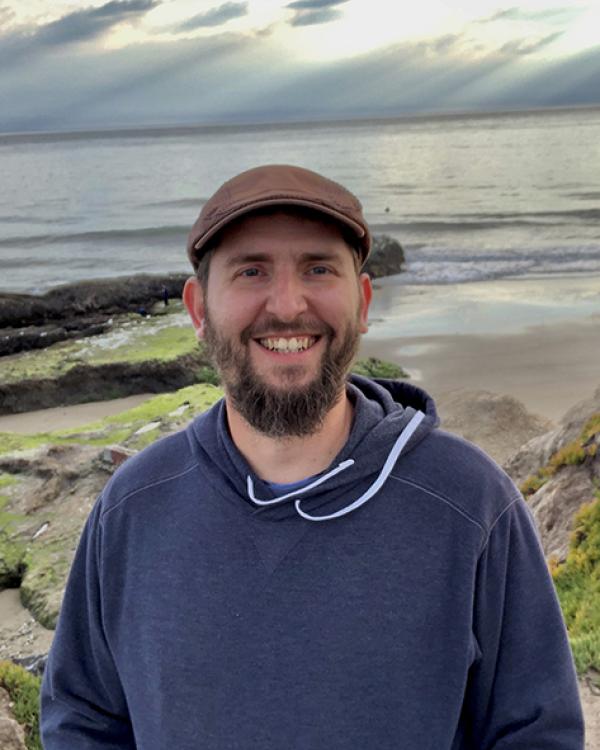
Bradford Fried is a doctoral student in the Department of Education working with Dr. Dorothy Chun and Dr. Jin Sook Lee. His emphases are in applied linguistics and cognitive science where he is researching the relationship between language, memory, and education, specifically the phonological working memory of Mandarin tones. Bradford grew up playing in the creeks and forests of Northern Virginia outside DC and has been vegan since 1999. He graduated from Lewis and Clark College in Portland, Oregon with a BA in philosophy during which he did a semester with NOLS and spent two terms in Guilin, China. After graduation, he moved back to Guilin where he taught EFL for the next 13 years, served as the director of international staff at Guangxi Normal University for five years, earned a master’s degree in teaching Chinese, and in 2009 founded the Chinese Language Institute (CLI) with his youngest brother to share their love of Chinese language and culture.
GGSE: How have you been killing time during the campus shutdown?
Fried: My wife and I have been spending lots of time at Campus Point learning to surf. She is picking it up much faster than I am, but even just being in the water enjoying the coastal and mountain views makes every outing worthwhile. We are also hiking up in the hills and walking at sunset often. It would be a shame to live at UCSB and not spend time in the ocean or mountains, so we grabbed the opportunity presented by the pandemic to spend time in nature. We are also playing lots of board games like Chinese chess (象棋), Go (围棋), and Catan. Our newest additions are Ticket to Ride and Dominion.
GGSE: You lived in China for a long time. Is there anything you miss about it? What was your favorite thing about living in Guilin?
Fried: I lived amidst the legendary karst mountains of Guilin, China for 13 years. I miss many things from life in Guilin, including riding my bike and/or electric scooter throughout the city and countryside, the cost of living, my ayi, 24/7 options, vegan buffets and local restaurants, $5 hourlong massages, my Chinese friends and colleagues, and speaking a foreign language every day. My favorite things about living in Guilin were the unexpected adventures that China presents on a daily basis and the kindness of the locals.
GGSE: What's your favorite work of Chinese literature?
Fried: Laozi's Daode Jing (aka Tao Te Ching; 道德经) and Sunzi's Art of War (孙子兵法) are two short texts that everyone should read. Along with Confucius' Analects (论语), they epitomize much of Chinese philosophy to this day. A great modern book from 1993 is To Live (活着) by Yu Hua (余华). It was also made into an amazing movie in 1994 by my favorite Chinese director, Zhang Yimou (张艺谋).
GGSE: If you could live anywhere, where and why?
Fried: There are so many places I hope to live! Santa Barbara and greater Denver top my list for the US, but I also would enjoy living in San Francisco, San Diego, Portland, Ashville, Austin, DC, NYC, Hawaii, Alaska, and Ithaca. Internationally, I hope to live in Amsterdam, Tel Aviv, Singapore, Taiwan, Hong Kong, Japan, Seoul, Chile, Peru, Medellin, Kenya, Berlin, Istanbul, Vancouver, London, India, and Switzerland. I love learning languages and culture, so I hope to have the opportunity to live in many places that offer a variety of both. I also want to live in places that offer lots of nature to explore, diverse friends to meet, vegan options to enjoy, bike-friendly paths to navigate, and live music to dance to.